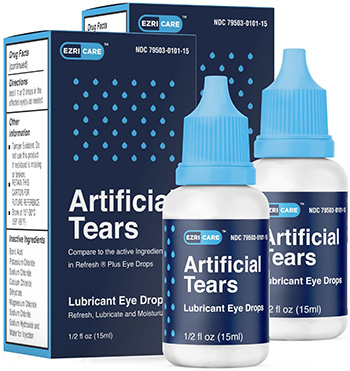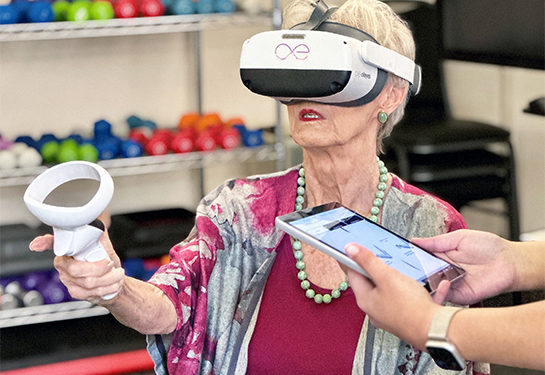FDA warns people not to use 2 types of eye drops due to contamination
Warning comes after several eye drop recalls this year, some linked to serious infections
Oct. 31, 2023: Read about the latest FDA warning alerting consumers to immediately stop using dozens over-the-counter eye drop products.
Updated Aug. 25, 2023
The Food and Drug Administration (FDA) is warning people not to use two types of eye drops that may contain bacterial contamination, fungal contamination, or both.
The drops include:
- Dr. Berne’s MSM Drops 5% Solution
- LightEyez MSM Eye Drops — Eye Repair
The FDA is recommending that people do not buy these products, stop using them, and discard of them properly.
According to the FDA, “using contaminated eye drops could result in minor to serious vision-threatening infection which could possibly progress to a life-threatening infection.”
At this point, the FDA says it is not aware of any adverse events from the use of either of these products.
Patients with any signs of an eye infection should seek medical care.
The FDA also notes that both of these products contain methylsulfonylmethane (MSM), an unapproved drug that the agency says is “illegally marketed in the U.S.”
Original story from previous recall, published March 14
FDA recalls 3 brands of eye drops. What patients need to know
The Food and Drug Administration (FDA) has recently recalled three brands of eye drops, including one that has been linked to serious infections, vision loss and a death. UC Davis Health experts share what you need to know.
Consumers are advised to stop using the following brands and return them to the place of purchase.

- Artificial Tears Lubricant Eye Drops distributed by EzriCare, LLC and DELSAM Pharma. On Feb. 2, the FDA issued a warning not to use EzriCare Artificial Tears because of potential bacterial contamination. The over-the-counter product was associated with severe eye infections in 55 patients, including one death. The infections were caused by a drug-resistant bacteria, Pseudomonas aeruginosa.
- Brimonidine Tartrate Ophthalmic Solution, 0.15%. Apotex Corp. initiated a voluntary recall for six lots of Brimonidine Tartrate Ophthalmic Solution on March 1 due to cracks in the caps. The prescription drops are used for patients with open-angle glaucoma or ocular hypertension. No infections have been associated with the product.
- Purely Soothing 15% MSM Drops. The FDA announced on March 3 that Pharmedica USA was voluntarily recalling two lots of Purely Soothing Drops. This over-the-counter product is being recalled due to non-sterility. There have not been reports of illness or infection related to the product.
In addition to drops, the FDA has also recalled Global Pharma Healthcare Artificial Eye Ointment due to possible bacterial contamination. No infections have been associated with this over-the-counter product.
“If you are using any of these specific products, stop,” said Gary D. Novack, a professor at UC Davis Health. Novack is a clinical pharmacologist with decades of experience in ophthalmic product development.
The UC Davis Eye Center has not seen any cases linked to the EzriCare drops, but infections have been reported in 12 states, including California.
“Using contaminated artificial tears increases the risk of eye infections that could result in blindness or serious illness,” Novack said.
Common symptoms of an eye infection include blurry vision, discharge, pain or discomfort, redness of the eyelid or eye, feeling like there is something in the eye, and increased sensitivity to light. “If you have any of these symptoms, please see an eye care professional,” Novack said.
Artificial tears safe when used properly
Artificial tears, like those in the recalled EzriCare drops, are the mainstay treatment for dry eye disease, according to Jeffrey H. Ma, an ophthalmologist at the UC Davis Eye Center. Ma specializes in ocular surface diseases — diseases that damage the surface layers of the eye.
“Dry eye disease is one of the most common eye diseases and can cause irritation, grittiness, redness, burning, tearing and blurred vision. Artificial tears can help with these symptoms,” Ma explained.
He notes that patients should pay attention to recalls like those announced by the FDA, but they don’t need to stop using all eye drops, which are safe when used correctly.
“Preservative-free drops come in disposable single-use vials. So long as people do not touch the tip of the vial to their eyes or keep it for more than a day, preservative-free drops are safe and a great option for dry eyes,” Ma said. “They tend to be gentle on the eyes and can be used more frequently throughout the day.”
Other steps to prevent eye infections include making sure to wash your hands before touching your eyes or eye drops. It’s also important to check the expiration date.
“Patients should not use eye-care products beyond the expiration date, as they may not be stable or sterile,” Ma explained.
The three recent eye-drop recalls appear to be unrelated. EzriCare Artificial Tears were recalled after the CDC linked them to serious infections in multiple states. The recall of Brimonidine Tartrate Ophthalmic Solution was initiated due to a manufacturing problem with the caps. Purely Soothing, 15% MSM Drops were recalled due to non-sterility.
For more information about drug recalls, visit the FDA website. If you think you may have an eye infection, contact your eye care provider.
The UC Davis Eye Center
The UC Davis Eye Center provides world-class eye care, pioneers collaborative vision research, and trains the next generation of specialists and investigators to become leaders in the Sacramento region and beyond. The Eye Center team aims to transform vision care and develop cures for blinding eye diseases, from cornea to cortex.



